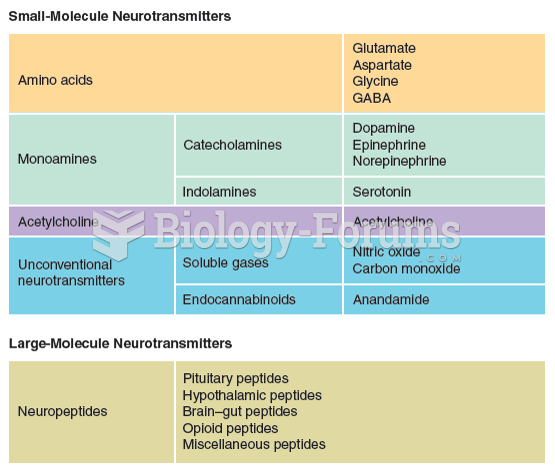|
|
|
The most common treatment options for addiction include psychotherapy, support groups, and individual counseling.
Disorders that may affect pharmacodynamics include genetic mutations, malnutrition, thyrotoxicosis, myasthenia gravis, Parkinson's disease, and certain forms of insulin-resistant diabetes mellitus.
Earwax has antimicrobial properties that reduce the viability of bacteria and fungus in the human ear.
The most dangerous mercury compound, dimethyl mercury, is so toxic that even a few microliters spilled on the skin can cause death. Mercury has been shown to accumulate in higher amounts in the following types of fish than other types: swordfish, shark, mackerel, tilefish, crab, and tuna.
It is widely believed that giving a daily oral dose of aspirin to heart attack patients improves their chances of survival because the aspirin blocks the formation of new blood clots.
 The respiratory system. (a) Sagittal section of the head and neck, revealing the organs of the upper
The respiratory system. (a) Sagittal section of the head and neck, revealing the organs of the upper
 The gaping hole in the destroyer USS Cole, in the port of Aden, Yemen, was the work of suicide bombe
The gaping hole in the destroyer USS Cole, in the port of Aden, Yemen, was the work of suicide bombe
 Classes of neurotransmitters and the particular neurotransmitters that were discussed (and appeared ...
Classes of neurotransmitters and the particular neurotransmitters that were discussed (and appeared ...




